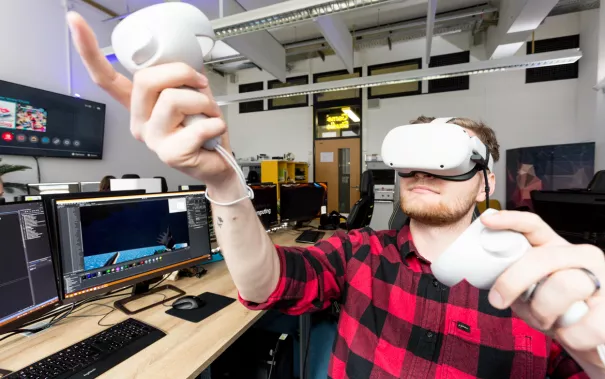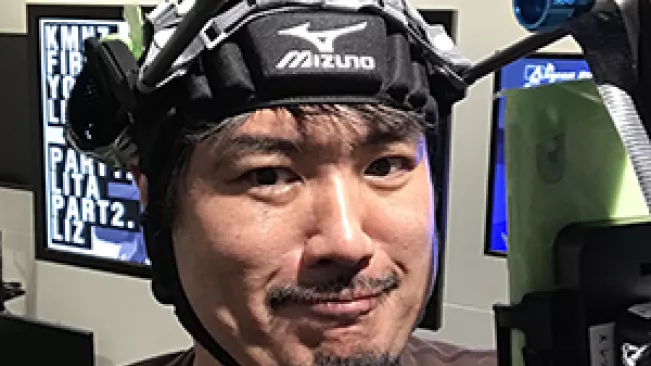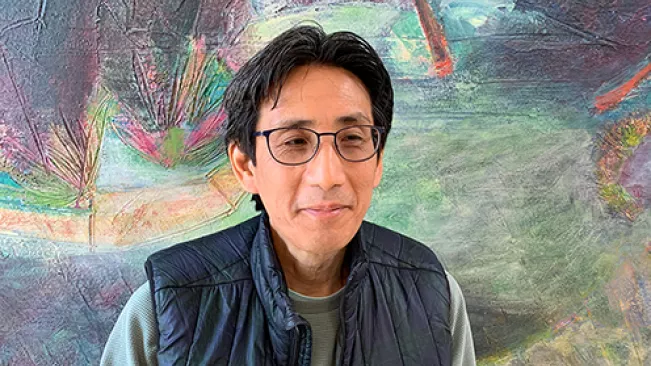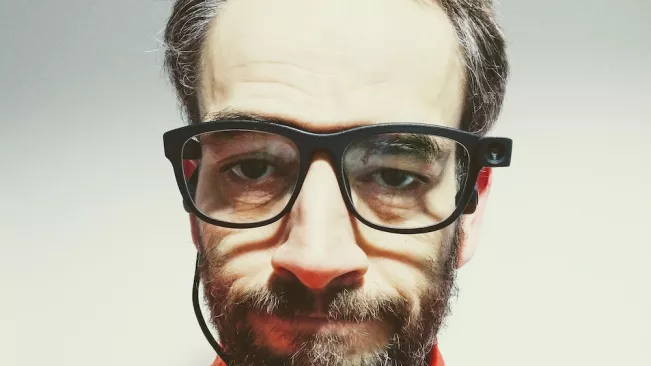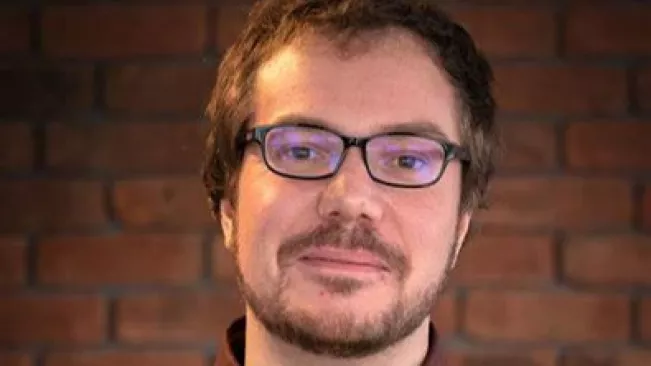Games
Games Technology Network (GTN)
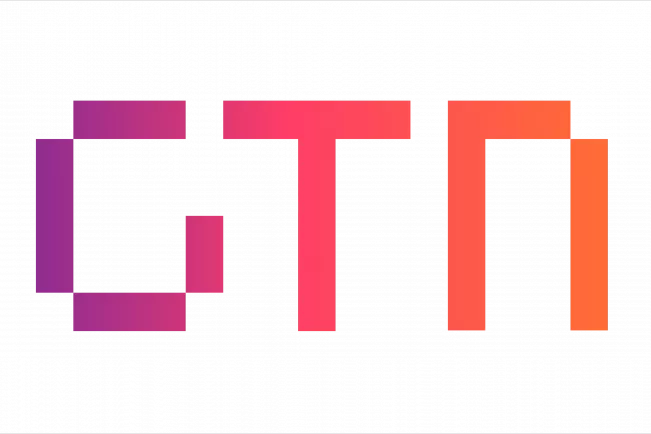
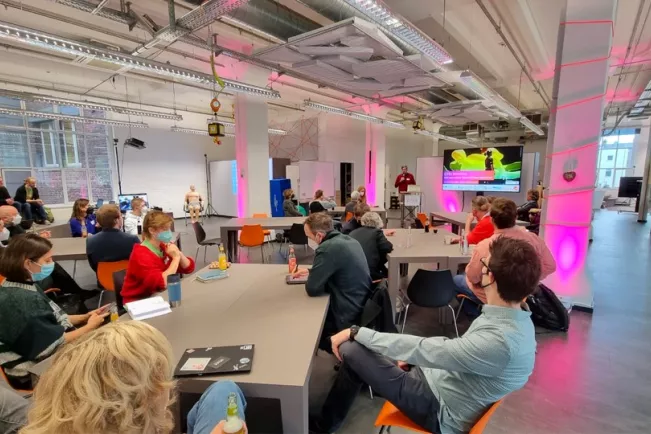
Goals
-
Networking in teaching and education
-
Networking with the games industry
-
Development of game technology demonstrators
-
Establishment of a collaborative innovation cluster - Games Technology Center
The GTN creates the conditions to greatly accelerate the transfer from basic research to industry and society. It represents a holistic value chain that ranges from the bundling of expert knowledge to the transfer into concrete applications (e.g. demonstrators / applications).
A consortium of four research-intensive universities in North Rhine-Westphalia.
Hochschule Bonn-Rhein-Sieg
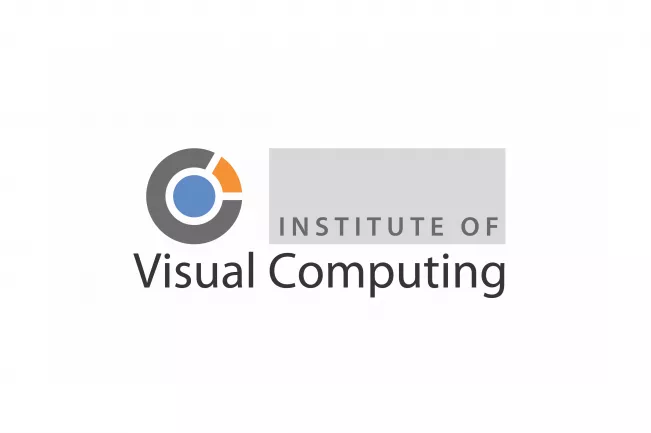
The topic of games is an integral part of the strategic research orientation at H-BRS. With the establishment of the Institute for Visual Computing, the university has made a commitment to the ongoing support and promotion of visual computing. Visual computing technologies (such as computer graphics, interaction, computer vision) form the foundation of many games and gaming platforms. Simultaneously, Visual Computing is one of the university-wide research focal points at H-BRS, and its support is enshrined in the current university development plan.
One of the key focal points of the IVC is the translation of research outcomes into practical applications through close collaboration with regional and national industries. This process has been notably bolstered by the establishment of the "Visualization Showroom," a demonstration laboratory for innovative interactive visualization systems. The IVC is a member of game - the German Games Industry Association.
RWTH Aachen University
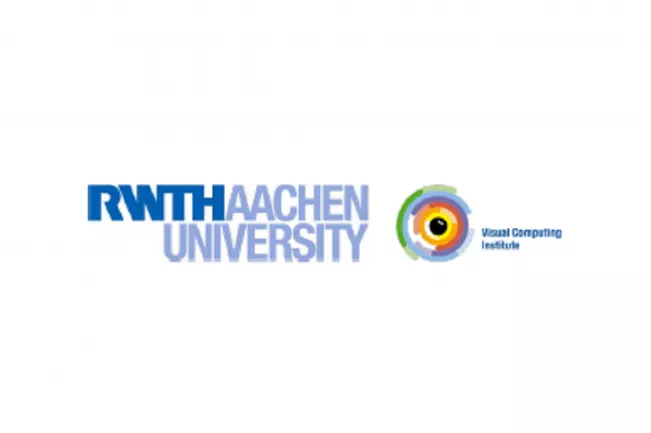
Die Forschungsgruppe "Computer Animation" am Visual Computing Institute der RWTH Aachen etwickelt neue effiziente und stabile Verfahren für die physikalisch-basierte Simulation von Starrkörpern, deformierbaren Körpern und Flüssigkeiten. Im Bereich der interaktiven Anwendungen, wie z.B. Computerspielen, werden hohe Anforderungen an die Geschwindigkeit und Stabilität gestellt. Eine Simulation muss in solchen Anwendungen in Echtzeit ablaufen und darf auch bei beliebigen Benutzerinteraktionen nicht instabil werden. In diesem Gebiet wurden in den letzten Jahren, u. a. in Kooperation mit der Forschungsgruppe für Physiksimulationen bei NVIDIA, neue positionsbasierte Simulationsverfahren entwickelt. Diese Verfahren sind speziell für den Einsatz in interaktiven Anwendungen geeignet. Dabei sind neue Methoden für die Simulation von elastischen Stäben, Kleidung, dreidimensionalen Weichkörpern und Starrkörpern entstanden. Weiterhin wurde auch die interaktive Simulation von Starrkörpern mit klassischen Methoden untersucht und ein GPU-basierter Löser für die benötigten linearen Gleichungssysteme entwickelt. Erst vor kurzem konnte auch im Bereich der Finite-Elemente-Simulationen ein großer Fortschritt erreicht werden. Durch eine neue Methode kann eine Simulation mit über 350 Tausend finiten Elementen in Echtzeit auf einem Standard-PC durchgeführt werden. Schließlich beschäftigt sich die Forschungsgruppe auch mit der Entwicklung einer effizienten Kollisionserkennung mit sogenannten Signed Distance Fields.
Insgesamt verfügt die Forschungsgruppe damit über viel Erfahrung im Bereich der Simulationsverfahren für interaktive Anwendungen und Computerspiele.
Technische Hochschule Köln
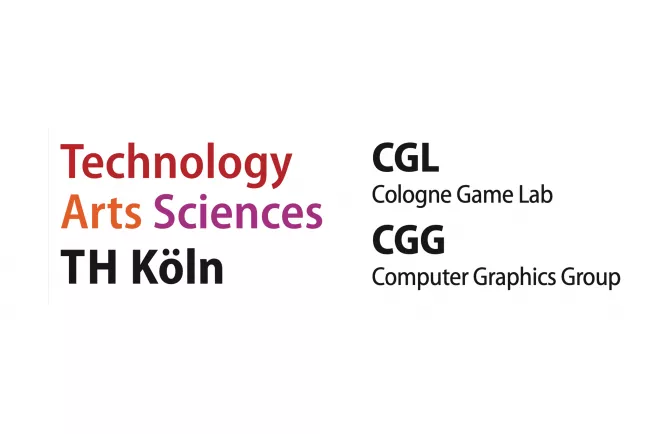
The Computer Graphics Group at TH Köln boasts several years of research activity in the fields of material acquisition, realistic and color-accurate real-time rendering, virtual and augmented reality, as well as clothing simulation (e.g., in funded projects such as SkEtch3D, ParSim 3D, Spindle 3D, and commissioned research for companies). In the recently successfully concluded BMBF project Retail 4.0, a system for collaborative clothing visualization in VR was developed. Currently, the CGG is working on a project supported by the Ministry of Culture and Science (MKW) in cooperation with HAW, which is exploring a collaborative VR training system for emergency responders and disaster preparedness (KoViTrek). A central aspect of such systems is the realistic representation of virtual environments, including a credible reproduction of the material properties of all surfaces. The CGG has been continuously developing solutions for the capture and reproduction of real surfaces and their reflection properties for years (e.g., in funded projects like Realtex and REALMAT).
The Cologne Game Lab (CGL) at TH Köln is a key player at the intersection of research and knowledge transfer in the gaming industry. Apart from providing academic education for future professionals in areas such as Game Design, Game Art, Game Informatics, and Game Studies, the CGL promotes a sustainable exchange between research and the industry. Events like Clash of Realities or the Global Game Jam are regularly organized to bring together different interest groups. The CGL is also actively engaged in gamification, training, and applied games research, and has participated in various international projects (such as the Antura Initiative, The Migrants’ Chronicle).
The GTN receives active support from the research group https://irex.team, which aims to develop interactive systems for innovative digital media to create relevant and sophisticated experiences accessible to people. Such systems encompass social and educational interactive experiences that generate cognitive and affective responses by eliciting emotions and inviting reflection on learning arrangements. Learn more about the program here: https://coco.study.
Hochschule Düsseldorf
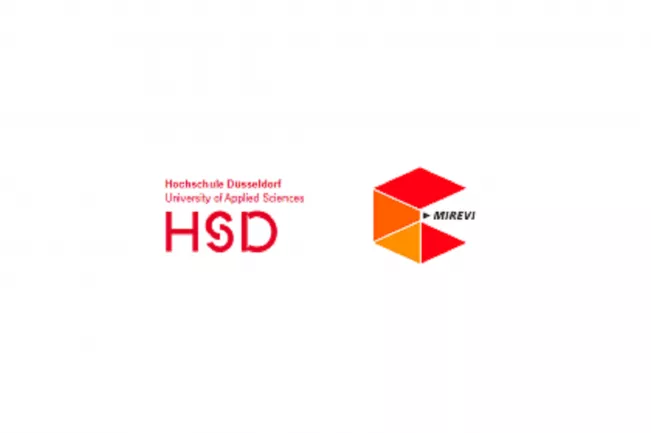
The Mixed Reality and Visualization research group led by Prof. Dr. Christian Geiger is one of the most prominent third-party funded entities at Hochschule Düsseldorf. This interdisciplinary team is dedicated to advancing methods and technologies for user-centered interaction between humans and technology. One of their focal points is motion-intensive interfaces that engage the entire body (e.g., based on body, facial, and eye tracking, as well as biosensors), as well as the comprehensive development of empathic systems (Empathic Computing). The overarching objective is always to design, implement, and validate the best possible user experience.
A particular emphasis of their application of Mixed Reality technologies lies in the realm of Entertainment Computing (including games, moving images/film, art, and culture) and digital health. For several years, the team has been increasingly leveraging knowledge-based methods and AI technologies.
Their goal is to create a holistic user experience that integrates technology seamlessly into human interaction and behavior, enhancing both creativity and practicality. Through their research and application, they contribute significantly to the ever-evolving landscape of Mixed Reality and its diverse applications.
The idea is to increase value creation in North Rhine-Westphalia (NRW) by utilising the exceptional expertise of partners from research, technology, design and society in an interdisciplinary manner. The initiative aims to enhance the games landscape in NRW through new, creative business models and forward-looking solutions and to position it in relation to companies from the USA and Asia. The aim is to promote growth, innovation and competitive advantages in the gaming industry in NRW and to establish the state as a hub for pioneering developments and unique projects.
The GTN creates the conditions for significantly accelerating the transfer of basic research to industry and society. It embodies a comprehensive value chain that extends from the consolidation of specialised knowledge to its implementation in concrete applications (such as demonstrators or applications). This framework ensures a seamless transition from idea to practical implementation and promotes the rapid translation of research results into real-world solutions that benefit different sectors and stakeholders.
2. Networking
With the Games Industry
The Games Technology Network focuses on harnessing synergies and expanding research and development capacities for game development.
Through workshops, the GTN bridges the gap between research and the game development industry in the NRW region, thus advancing innovative core technologies for game development that enable new or enhanced player experiences.
With the Cultural Sector
We aspire to integrate games into museum practices from various perspectives, thereby initiating an exchange between academia, game studios, and cultural institutions. This collaboration aims to enrich both the gaming landscape and the cultural sector, fostering new forms of engagement and interaction for diverse audiences.
News
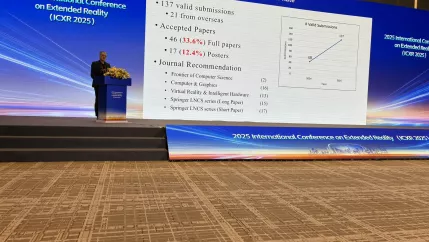
Tue, 18. November 2025
Einladung nach China: Prof. André Hinkenjann als Program Co-Chair der ICXR 2025
Auf Einladung der ICXR 2025 reiste André Hinkenjann nach China. Neben seiner Rolle als Program Co Chair der Konferenz führte die Reise zu weiteren Universitäten in Peking, Hangzhou und Shanghai und bot Gelegenheit zu wissenschaftlichem Austausch und Vorträgen.
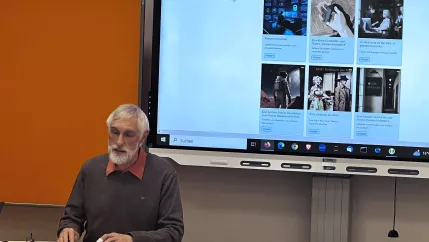
Fri, 10. October 2025
Fighting Weak Passwords with Stories: Research Project Raises Cybersecurity Awareness
How can IT security be told in an exciting way? Professor Dr Wolfgang Heiden from the Institute of Visual Computing shows that education can also be entertaining. In his research project, he combines stories, music and computer science to sensitise older people to the safe use of digital technologies.
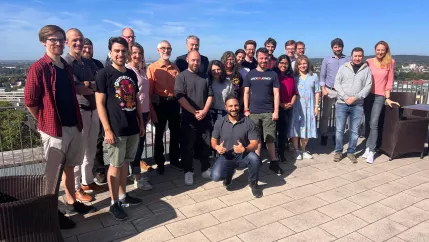
Thu, 02. October 2025
Kooperation und Teamgeist im Mittelpunkt des IVC-Strategiemeetings
Zwei Tage voller Austausch und neuer Impulse: Das IVC-Team traf sich zum jährlichen Strategiemeeting in Siegburg.
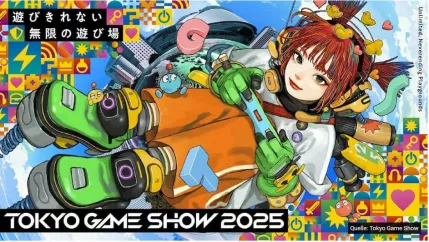
Tue, 02. September 2025
H-BRS präsentiert Game Technologies und Forschung auf der Tokyo Game Show 2025
Bonn-Rhein-Sieg University of Applied Sciences is making its strength in games technologies visible worldwide by participating in the Tokyo Game Show 2025. The focus is on research projects, study programmes and the student puzzle adventure game "Honu". At the same time, the Institute for Visual Computing is strengthening its international presence and intensifying its cooperation with universities, studios and technology companies.
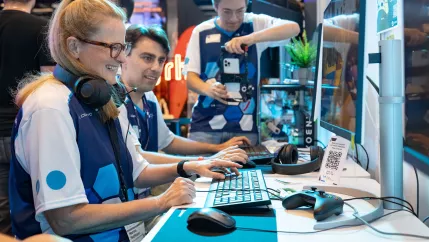
Tue, 02. September 2025
H-BRS presents research diversity and study programs at Gamescom 2025
Bonn-Rhein-Sieg University of Applied Sciences was represented at Gamescom 2025 by the Institute for Visual Computing (IVC) and the Departments of Computer Science and Engineering and Communication (IWK). In front of a sensational 357,000 visitors, H-BRS presented its wide range of research, from virtual reality and game development to educational games and robotics, and showed how closely research, teaching and the social relevance of games are linked.
3. Development of Games Technology Demonstrators
The GTN encompasses exploratory research that informs the technology demonstrators utilizing gaming technologies in novel application areas. This serves as the foundation for innovative systems and applications for stakeholders in our region, such as cultural institutions (museums), healthcare organizations, and SMEs.
Ethical and social aspects of gaming technologies are also considered. The research into these technologies is based on the expertise of the involved partners and is refined as a result of collaborative workshops.
4. Development of Games Technology Demonstrators
The GTN encompasses exploratory research that informs the technology demonstrators using gaming technologies in novel application areas. These demonstrators serve as the foundation for innovative systems and applications for stakeholders in our region, such as cultural institutions (museums), healthcare organizations, and SMEs.
Ethical and social aspects of gaming technologies are also taken into consideration. The exploration of these technologies is rooted in the expertise of the involved partners and is refined as a result of collaborative workshops.
Insights into the Project
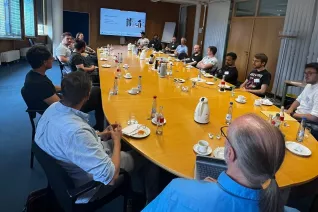
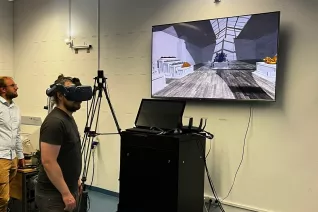
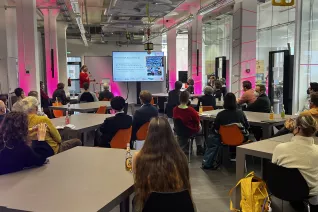
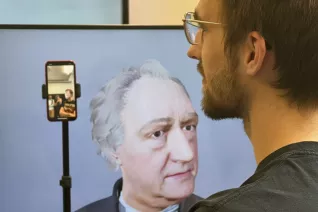
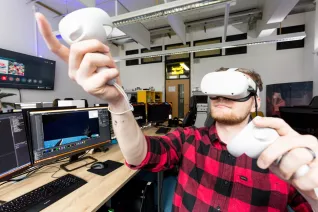
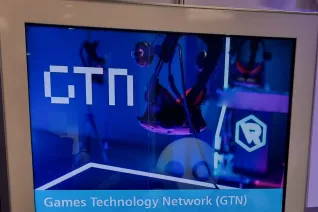
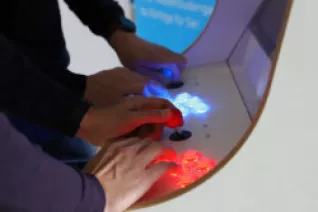
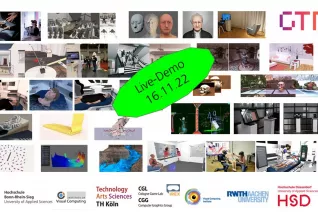
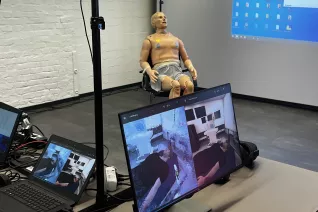
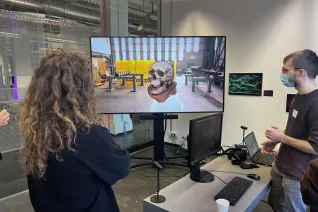
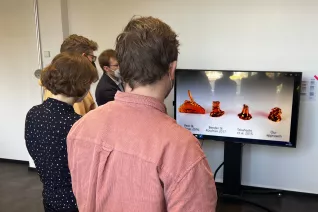
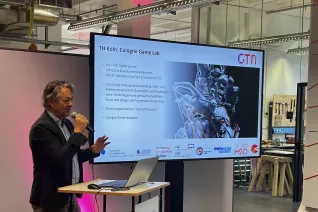
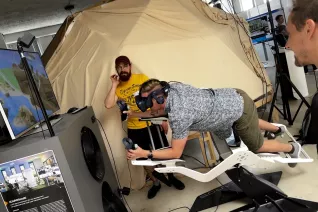
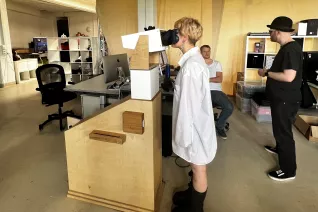
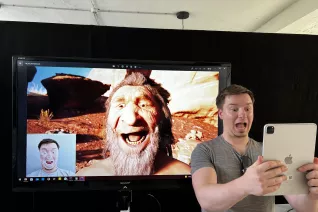
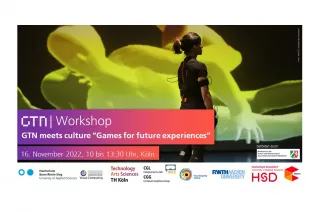
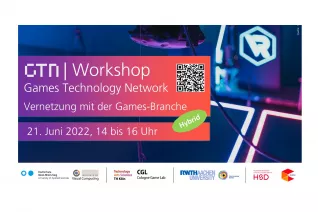
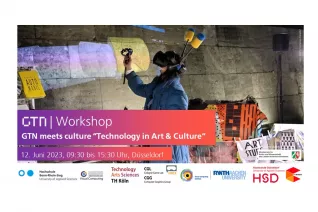
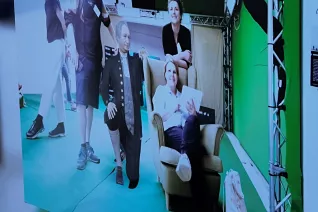
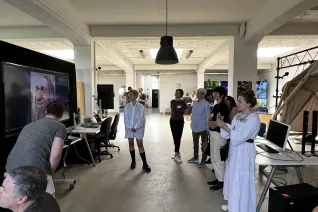
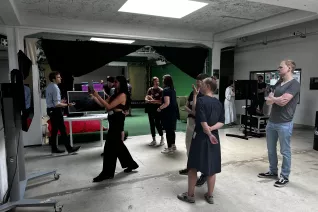
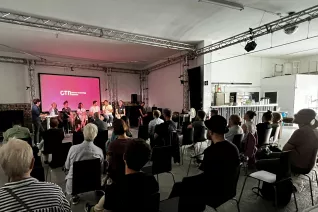
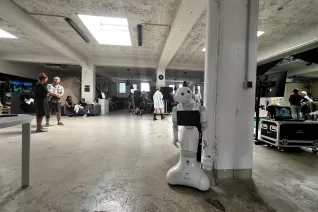
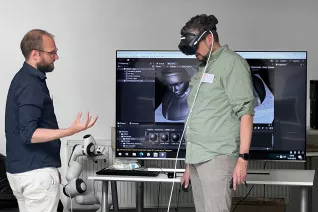
Beispielanwendungen
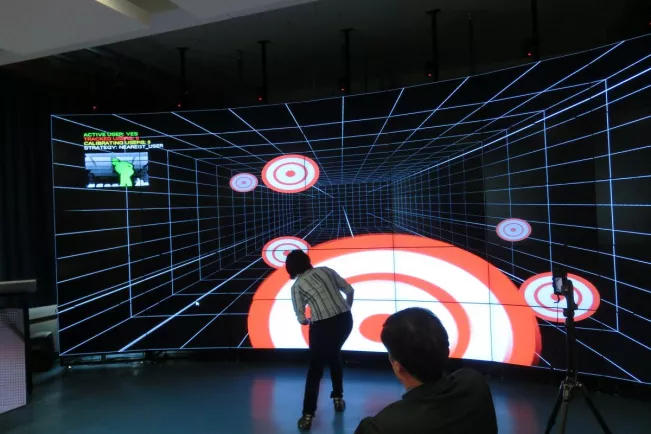
Video Games
As part of the digital creative industry, video game development showcases high innovation potential. The GTN promotes research in fundamental technologies (computer graphics, human-computer interfaces, simulation in demonstrators) and new games, which also benefits other sectors of the economy (such as the film industry, architecture and construction, mobility, education, health, and caregiving).
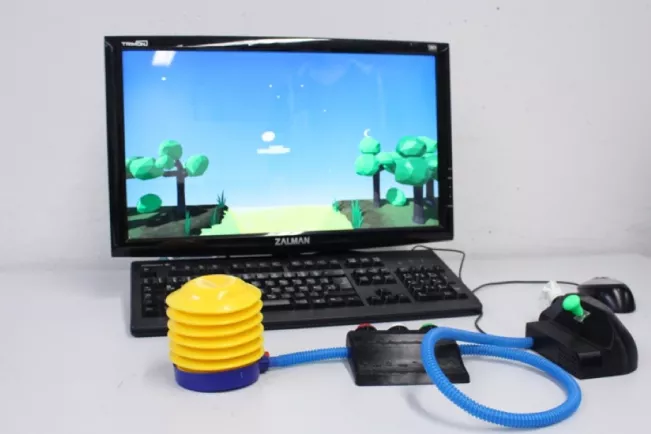
Gamified learning / training
New game technologies and methods have significant potential for the development of gamified learning and training systems that can be applied in new domains. These domains encompass SMEs in the region, as well as "new actors" – those who have expressed interest in the technologies through existing projects. These include schools or public institutions that disseminate knowledge to a broader audience (e.g., public organizations or government agencies), as well as specific professional groups like rescue and emergency personnel. These groups particularly benefit from training systems based on cutting-edge VR/AR technologies.
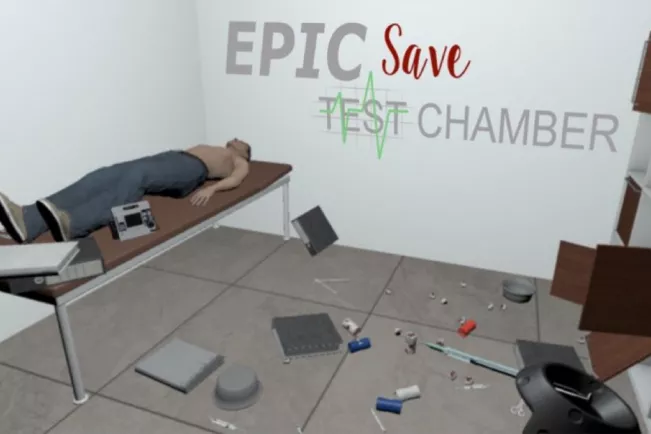
Serious Gaming in the Healthcare Sector
Serious gaming is revolutionising healthcare by using interactive games to improve medical education, patient training and rehabilitation. It provides a dynamic platform for healthcare professionals to practice skills in realistic scenarios. Patients benefit from a better understanding of their conditions through interactive experiences, while customised games support rehabilitation and promote healthier lifestyles. Games also serve as therapeutic tools to manage stress and promote mental health. In addition, serious gaming contributes to research by collecting valuable data on user interactions. Serious gaming is expected to play a crucial role in the transformation of healthcare as technology evolves.

Museum Applications
Serious gaming and interactive technologies have transformed museums, transforming static exhibits into dynamic, immersive experiences. These applications are rejuvenating cultural institutions and offering innovative ways to educate and entertain different audiences. Museums are utilising augmented reality (AR) and virtual reality (VR) to transport visitors to different eras and locations, creating a deeper connection to the subject matter. Gamified learning through interactive challenges and quizzes makes education entertaining and memorable. Personalised tours, facilitated by mobile apps, allow visitors to customise their museum experience and access additional information and multimedia content according to their preferences. Interactive art installations blur the line between viewer and creator, while holographic displays bring historical figures and animals to life in 3D. Digital technologies such as 3D scanning are helping to preserve cultural heritage by reconstructing fragile artefacts for future generations. Museums are also integrating multi-sensory experiences by incorporating touch, sound, smell and tactile exhibits to provide a holistic sensory journey. Overall, the integration of technology into museums offers an exciting and innovative approach to education, storytelling and visitor engagement.
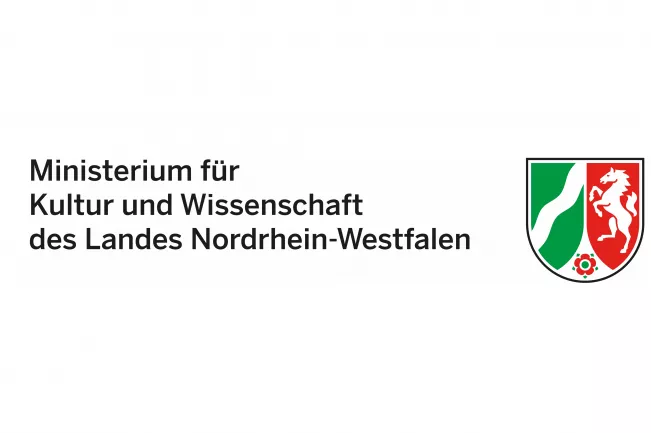
The project is initially planned for two years and is funded by the Zukunftsfonds NRW.
Space for new game ideas: The Game Studio of the H-BRS.
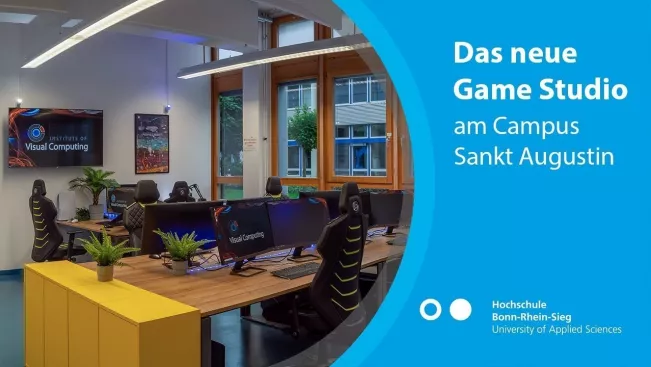
Do you still have questions?

Location
Sankt Augustin
Room
C 163
Address
Grantham-Allee 20
53757, Sankt Augustin
Telephone
+49 2241 865 9826Links




